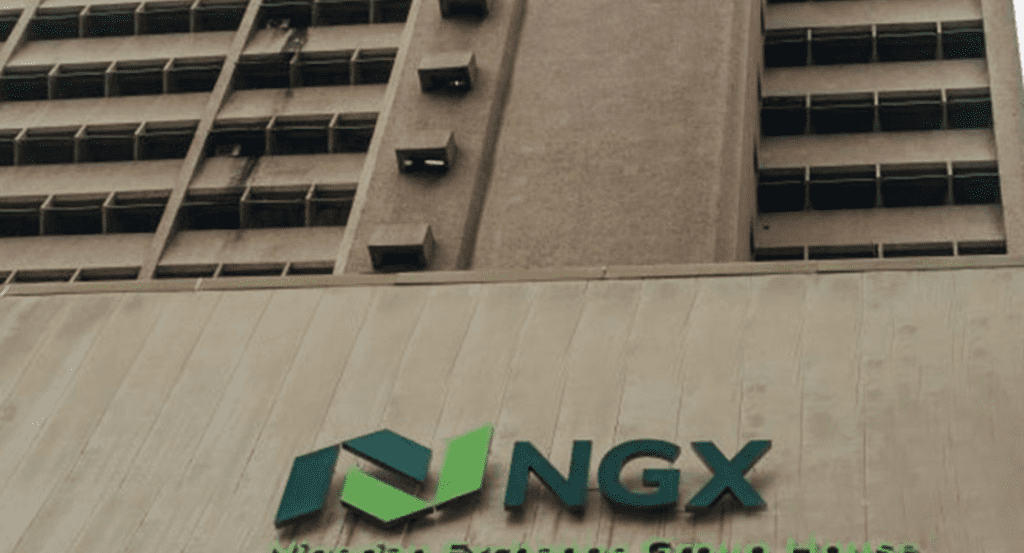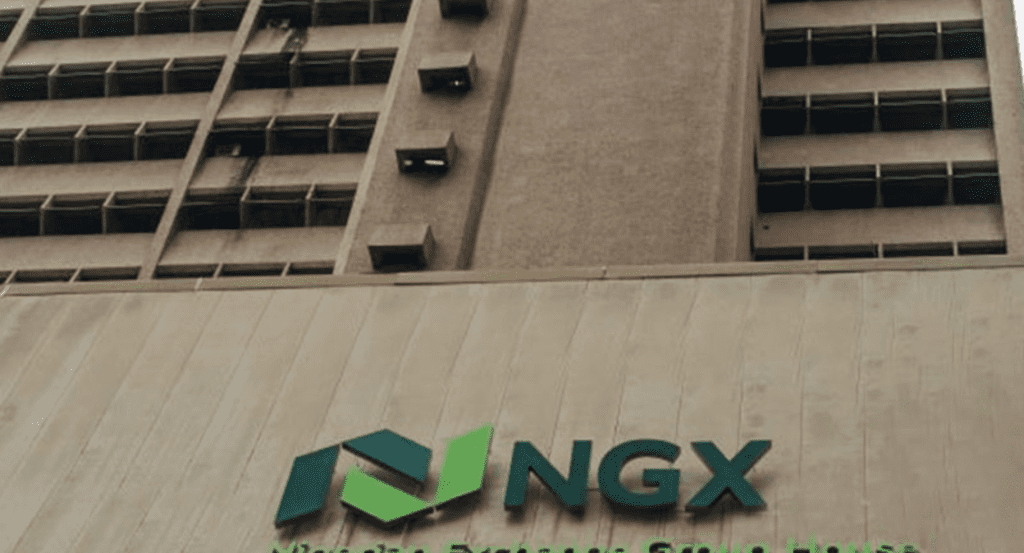The Nigerian stock market experienced a significant downturn as investors engaged in profit-taking, leading to a market capitalization loss of N231 billion. The All-Share Index (ASI) declined by 0.32%, closing below the 108,000-point mark. Major sell-offs in key stocks, including FBN Holdings, contributed to the losses, highlighting investor caution amid market volatility.
The slump follows a brief rally in previous sessions, suggesting that traders are locking in gains from recent price surges. Despite the pullback, market analysts believe that selected fundamentally strong stocks remain attractive for long-term investors.
Market Performance Overview
At the close of trading on February 25, 2025, the Nigerian Exchange Limited (NGX) reported a drop in market capitalization from N59.3 trillion to N59.07 trillion, reflecting a loss of N231 billion in a single session.
The All-Share Index (ASI), which tracks overall market performance, fell by 0.32% to settle at 107,876.02 points, dropping below the key 108,000-point threshold. This decline erased part of the gains recorded in the past weeks, reinforcing concerns over profit-taking pressures and investor sentiment shifts.
Key Drivers of the Market Decline
1. Profit-Taking in Banking and Blue-Chip Stocks
The downturn was largely driven by profit-taking in high-cap stocks, particularly in the banking sector. Stocks such as FBN Holdings, Access Holdings, and Zenith Bank witnessed notable declines as investors cashed out after recent price surges.
- FBN Holdings led the decline, experiencing heavy sell-offs, which contributed significantly to the overall market dip.
- Access Holdings dominated trading volume, reflecting heightened investor activity, but this did not prevent the stock from facing downward pressure.
2. Negative Sentiment and Portfolio Rebalancing
Market sentiment remained mixed, with investors showing caution due to uncertainties in macroeconomic policies, inflation trends, and interest rate movements. Some traders opted to rebalance their portfolios, shifting focus from equities to fixed-income instruments in response to recent adjustments in Treasury bill rates by the Central Bank of Nigeria (CBN).
3. Global Market Trends and External Influences
Beyond domestic factors, global market uncertainties also contributed to the bearish sentiment. Recent fluctuations in oil prices, geopolitical tensions, and expectations of monetary policy changes by major central banks have impacted foreign investor participation in Nigerian equities.
Sectoral Performance: Mixed Reactions Across Industries
Despite the market decline, some sectors remained resilient:
- Banking Sector: Declined due to profit-taking, with stocks like FBN Holdings and GTCO seeing significant losses.
- Industrial Goods: Mixed performance, with some counters managing to stay flat.
- Consumer Goods: Marginal gains in select stocks helped cushion overall market losses.
- Oil & Gas: Stable, as crude oil price movements provided some level of support for energy stocks.
Stock Recommendations and Investment Outlook
Despite the downturn, analysts suggest that the Nigerian stock market still holds opportunities for investors willing to take a long-term position. The recent sell-off presents buying opportunities in stocks with strong fundamentals and growth potential.
Recommended Stocks for the Week
According to investment research, the following stocks are worth considering:
- Dangote Cement (DANGCEM) – A strong dividend stock with solid earnings prospects.
- MTN Nigeria (MTNN) – Defensive stock with consistent revenue growth.
- Zenith Bank (ZENITHBANK) – A top-tier bank with strong financial performance.
- BUA Foods (BUAFOODS) – A key player in the food processing industry with steady growth potential.
Market Outlook: Will the Bearish Trend Continue?
Analysts predict that the market may remain volatile in the short term, driven by:
- Profit-Taking and Portfolio Adjustments – More investors could book profits in the coming sessions, particularly in banking and consumer goods stocks.
- Interest Rate Adjustments – With the CBN cutting Treasury bill rates, investors may explore alternative investment opportunities.
- Earnings Season Effect – As corporate earnings reports continue to trickle in, stocks with strong financial results may see renewed investor interest.
The Nigerian stock market downturn, marked by a N231 billion loss and a 0.32% drop in the ASI, underscores the impact of profit-taking and shifting investor sentiment. While some stocks faced sell-offs, the market still offers opportunities for strategic investors focusing on long-term value.
As trading activities unfold in the coming days, investors will closely monitor corporate earnings, economic policies, and global market trends to make informed investment decisions. Will the market bounce back, or will the bearish sentiment persist? The answer lies in how investors react to evolving financial conditions in the weeks ahead.





























